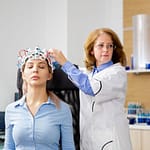Preventing Relapses: Post-Treatment Strategies for Managing OCD
Introduction of Post-Treatment Strategies for Managing OCD
The Department of RNR Medicines at Jaslok Hospital provides the best OCD treatment with TMS in Mumbai and instructs that managing OCD symptoms after treatment does not conclude with treatment completion; it extends into effective post-treatment ways to manage OCD relapse.
OCD, characterized by intrusive thoughts and compulsive behaviors, demands ongoing care. This comprehensive guide explores vital strategies encompassing therapy, medication management, lifestyle adjustments, and support networks. Understanding the nuanced nature of OCD, we delve into the importance of continued therapeutic interventions, stress management, and sustaining a structured routine. Join us on an insightful exploration of tailored OCD treatment with TMS in Mumbai that empowers individuals to proactively managing OCD symptoms after treatment and fortify their resilience against potential relapses.
What Does OCD Relapses Mean?
What does an OCD spike feel like? The doctors at our TMS treatment clinic for OCD in Mumbai say that OCD relapses involve the resurgence of distressing obsessions and compulsive behaviors after a period of symptom improvement.
What triggers OCD? Triggers can include stress, life changes, or exposure to anxiety-inducing situations. Recognizing early warning signs, maintaining a treatment plan, and promptly seeking support can help manage and prevent relapses, fostering ongoing stability and well-being for individuals navigating the complexities of OCD.
What Triggers OCD Relapses?
What triggers OCD? OCD relapses can be triggered by factors such as:
- Heightened Stress Levels,
- Major Life Changes, Or
- Exposure To Situations That Evoke Anxiety.
These triggers often amplify intrusive thoughts and compulsive behaviors. Recognizing personal triggers is crucial for individuals managing OCD, enabling them to implement proactive strategies, maintain their treatment plan, and seek support to mitigate the risk of relapses.
How Important are Post-Treatment Strategies for OCD?
Post-treatment strategies for OCD are vital for sustained well-being after managing OCD. Continuing therapy helps reinforce coping mechanisms, medication management maintains stability and structured routines aid in stress management. Support networks, including friends and family, offer emotional reinforcement.
According to our TMS treatment doctors for OCD in Mumbai, these strategies for how to stop OCD relapse collectively contribute to preventing relapses and ensuring a holistic, long-term approach to managing obsessive-compulsive disorder beyond the initial phases of treatment.
Building a Strong Support System
How to stop OCD relapse? Building a robust support system is crucial for managing OCD.
- Friends, family, and support groups offer understanding and encouragement, easing the emotional burden.
- Open communication fosters a safe space to discuss challenges and successes.
- Involving loved ones in the treatment of OCD is the journey that creates a united front against OCD, providing the essential foundation for ongoing resilience and well-being.
Engaging in Continued Therapy and Counseling
How to deal with OCD flare up? Continued therapy and counseling are essential post-treatment strategies for managing OCD. Cognitive-behavioral therapy (CBT) provides ongoing support, reinforcing coping mechanisms and addressing emerging concerns. The TMS treatment doctors for OCD in Mumbai state that regular sessions empower individuals to navigate challenges, understand triggers, and maintain a proactive stance against OCD symptoms. This therapeutic continuity is pivotal for long-term resilience and preventing relapses, ensuring sustained well-being in the journey of managing Obsessive-Compulsive Disorder.
Prioritizing Stress Management Techniques
How to deal with OCD flare up? Prioritizing stress management is integral for preventing OCD relapses. Techniques such as
- Mindfulness,
- Deep Breathing,
- Relaxation Exercises
- Establishing A Routine,
- Getting Sufficient Rest,
- Engaging In Enjoyable Activities
They help mitigate anxiety and contribute to overall well-being.
Our TMS treatment hospital for OCD in Mumbai claims by fostering a resilient response to stress, individuals with OCD can enhance their ability to navigate triggers and maintain stability in their post-treatment journey.
Maintaining a Consistent Sleep Schedule
Maintaining a consistent sleep schedule is crucial for managing OCD post-treatment. Quality sleep supports emotional regulation and overall well-being. As per the neurologist at our TMS treatment clinic for OCD in Mumbai
- Establishing a bedtime routine,
- Creating a comfortable sleep environment, and
- Avoiding stimulants before bedtime
They contribute to better sleep hygiene. Prioritizing adequate rest enhances the body’s resilience against stressors, OCD relapse prevention and fostering ongoing stability.
Nourishing the Body with a Balanced Diet
Nourishing the body with a balanced diet is paramount for managing OCD symptoms after treatment. According to our TMS treatment doctors for OCD in Mumbai,
What food helps with OCD? A diet rich in:
- Fruits,
- Vegetables,
- Lean proteins, and
- Whole grains
It supports overall well-being. Monitoring caffeine intake and staying hydrated is essential. A balanced diet contributes to physical health, providing individuals with the energy and nutrients needed for resilience in their journey of OCD relapse prevention and maintaining stability.
Practicing Mindfulness Meditation
The neurologists at our TMS treatment clinic for OCD in Mumbai suggest that practicing mindfulness meditation are powerful practical relapse prevention strategies for managing OCD post-treatment.
Mindfulness cultivates present-moment awareness, helping individuals observe thoughts without judgment. Regular practice enhances emotional regulation and resilience against triggers.
By fostering a non-reactive mindset, individuals can effectively navigate stressors and reduce the risk of OCD relapse after stopping medication, contributing to a more balanced and mindful post-treatment experience.
Developing Effective Coping Strategies
How to break the OCD cycle? Developing effective coping practical relapse prevention strategies is crucial post-treatment for managing OCD. Identifying personal triggers and implementing tailored coping mechanisms enhances resilience.
Techniques such as:
- Distraction,
- Visualization, and
- Thought-stopping
They empower individuals to navigate challenging moments. These practical relapse prevention strategies, integrated into daily life, contribute to preventing OCD relapse after stopping medication and ensuring sustained well-being in the ongoing journey of managing OCD.
Staying Active and Engaged in Life
How to break the OCD cycle? Staying active and engaged in life is pivotal post-treatment for managing OCD. The neurologists at our TMS treatment hospital for OCD in Mumbai explain that regular physical activity promotes overall well-being and helps mitigate stress.
Pursuing hobbies, socializing, and setting achievable goals foster a sense of purpose and fulfillment. By actively participating in life, individuals can reduce the risk of OCD relapse after stopping medication, contributing to a balanced and meaningful post-treatment experience.
Monitoring Progress and Seeking Professional Guidance
Monitoring progress and seeking professional guidance are key post-treatment strategies for managing OCD. Regular self-assessment and reflection help individuals recognize any emerging challenges. Prompt communication with mental health professionals ensures timely intervention if needed. This proactive approach, combined with ongoing TMS for OCD treatment and support, contributes to preventing relapses and fostering sustained well-being in the journey of managing obsessive-compulsive disorder beyond the initial treatment phase.
Tracking Mental Health Progress
As per our TMS treatment doctors for OCD in Mumbai tracking mental health progress is crucial post-treatment for managing OCD. Journaling thoughts, emotions, and behavioral patterns provide insight into personal triggers and coping effectiveness. Regular self-assessment fosters self-awareness, enabling individuals to adapt their strategies as needed. This proactive approach contributes to preventing relapses and supports ongoing mental health well-being in the dynamic journey of managing obsessive-compulsive disorder.
When and How to Seek Professional Help Again
Knowing when and how to seek professional help again is essential for managing OCD post-treatment. Prompt consultation with the doctors a our TMS treatment hospital for OCD in Mumbai is crucial if symptoms resurface, worsen, or interfere with daily life. Open communication, discussing concerns, and collaborating on adjustments to the treatment plan ensure timely intervention, preventing relapses and fostering ongoing well-being in the journey of managing Obsessive-Compulsive Disorder.
OCD relapse prevention after the treatment involves a multifaceted approach. Continued therapy, medication management, and building a robust support system are foundational. Prioritizing stress management, maintaining a healthy lifestyle, and practicing mindfulness contribute to ongoing stability. Regular self-assessment and tracking progress ensure adaptability. If needed, seeking professional help promptly is crucial. These comprehensive ways to manage OCD Relapse empowers individuals to navigate the complexities of Obsessive-Compulsive Disorder with resilience and proactivity. By embracing tailored post-treatment approaches, individuals can sustain their well-being and minimize the risk of relapses, fostering a balanced and fulfilling life beyond the challenges of OCD.
OCD Treatment with TMS in Mumbai
The Jaslok Hospital’s Department of RNR Medicine offers the best OCD treatment with TMS in Mumbai. This non-invasive treatment targets the brain’s neural pathways involved in OCD and is effective in reducing symptoms. Our OCD treatment with TMS in Mumbai involves the use of magnetic fields to stimulate nerve cells in the targeted parts of the brain. Jaslok Hospital’s Department of RNR Medicines is staffed by experienced professionals who utilize cutting-edge technology to provide patients with compassionate and effective care.














